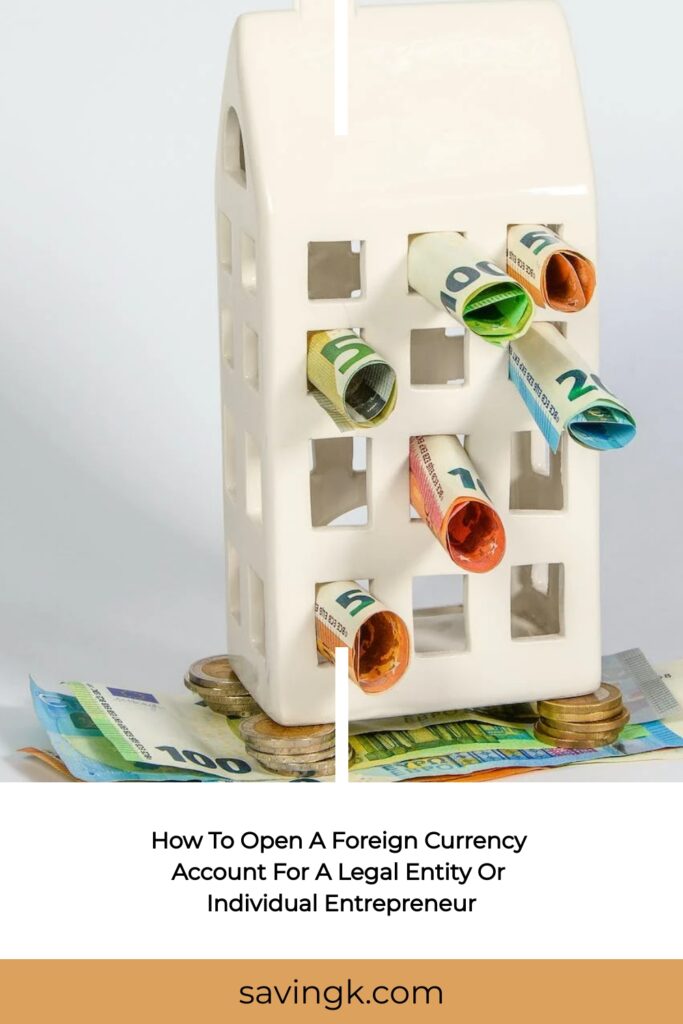
Both legal entities and individual entrepreneurs may need to open a foreign currency account. Let’s figure out in what cases a foreign currency account is needed. Let us outline what needs to be done to open an account in foreign currency.
Contents
Why do you need a foreign currency account?
When conducting business, business entities sooner or later begin to expand and/or enter foreign markets. This opens up new prospects for business and raises questions about the format of interaction with new counterparties.
The main difference between a foreign currency account and a standard settlement account is the currency in which account payments are made. The current account is used for transactions only in the currency of your country.
The company can engage in both import and export. But in any case, some transactions will take place in foreign currencies. In addition, the activities of a legal entity may not be directly related to companies in other countries. Still, there may be a single transaction in which foreign currency will be used.
In all these cases, it will be necessary to open a foreign currency current account for legal entities. In the era of technology, you can choose any currency, as well as open GBP account online. That is, you don’t even have to come to a bank branch.

Features of currency accounts
- Such an account can only be opened in an institution with the appropriate license. Therefore, before choosing a bank, you should find out whether it has such permission.
- A business entity has the right to open several foreign currency accounts. There are no restrictions in this matter.
A separate account is opened for each currency used (for dollars, for euros, etc.).
Algorithm for opening a foreign currency account
A foreign currency account for legal entities is opened after certain actions. This algorithm is simple, but you need to know it to understand the procedure.
- Selecting a bank.
- Consultation to determine the conditions for opening an account.
- Collection of documents.
- Providing documents to the bank.
- Signing an agreement to open a foreign currency account.
An individual entrepreneur can open a foreign currency account in the same way.
Banks are commercial enterprises. Each of them will have their conditions under which they work, open accounts, and conduct transactions: different costs for maintaining an account, interest in transferring funds, currency control, software, support service, etc.
All these points should be taken into account when choosing an institution. Of course, the easiest way is to contact your main bank, where you already have a checking account to make things easier.
After submitting a package of documents, you should ensure that the banking institution employees approve the consent to open an account.
Next, you need to familiarize yourself in detail with all the clauses and conditions of the contract to avoid surprises and further disagreements. If everything is in order, then the agreement is signed by all parties and the organization opens a foreign currency account.
How to choose a country in which to open a foreign exchange account
The choice of country for opening a foreign bank account depends on the purpose of opening the account and your needs regarding the account. What should you pay attention to when choosing a country and a bank?
- The economic and political environment must be stable, and this is perhaps the most important factor. Because these two elements will protect your funds.
- Also, keep in mind that tax regimes vary by country. Some governments may provide lower tax rates or specific tax advantages to foreign account holders.
- Some individuals value high levels of anonymity when creating an account, therefore we recommend that you consider this as well.
- Due to potential limits on foreign transfers, taxes, and access to Internet banking, it is critical to select a country in which you can easily manage your account.
- To facilitate communication and account administration, choose a nation where you speak the language or where services are available in your language.
Furthermore, the criteria and restrictions for creating a foreign currency account in each nation should be clarified, since they may differ based on bank legislation and policies.




